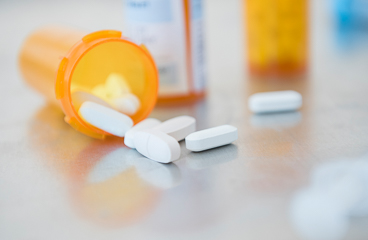
Overview
Almost any medicine can cause harm if your child takes too much of it. Your child has been treated to help their body get rid of an overdose of a medicine. This may have been an over-the-counter medicine. Or it might have been one that a doctor prescribed. It may even have been a vitamin or a supplement.
During treatment, the doctor may have given your child fluids and medicine. Your child also may have had lab tests. Then the doctor made sure that your child was well enough to go home.
The doctor has checked your child carefully, but problems can develop later. If you notice any problems or new symptoms, get medical treatment right away.
Follow-up care is a key part of your child's treatment and safety. Be sure to make and go to all appointments, and call your doctor if your child is having problems. It's also a good idea to know your child's test results and keep a list of the medicines your child takes.
How can you care for your child at home?
Home care
- Talk with your doctor about what your child should eat or drink.
- If your child normally takes medicines, ask your doctor when your child can start taking them again.
- Read the information that comes with any medicine. If you have questions, ask your doctor or pharmacist.
Prevention
- Be safe with medicines. Give all medicines exactly as prescribed or as the label directs. Call your doctor if you think your child is having a problem with a medicine.
- Store all medicines out of the reach of children. Keep medicines in the containers they came in. Many of these are child-resistant.
- Keep the phone number for the Poison Control Center (1-800-222-1222) near your phone.
When should you call for help?
Poison control centers, hospitals, or your doctor can give immediate advice in the case of a poisoning. The United States National Poison Control Hotline phone number is 1-800-222-1222. Have the poison container with you so you can give complete information to the poison control center. This includes what the poison or substance is, when it was taken, and how much was taken. Do not try to make your child vomit.
Call 911 anytime you think your child may need emergency care. For example, call if:
- Your child passes out (loses consciousness).
- Your child has trouble breathing.
- Your child is sleepy or hard to wake up.
- Your child is having a seizure.
Call your doctor now or seek immediate medical care if:
- Your child is vomiting.
- Your child has a new or worse headache.
- Your child is dizzy or lightheaded or feels like they may faint.
Watch closely for changes in your child's health, and be sure to contact your doctor if:
- Your child does not get better as expected.
Current as of: October 1, 2025
Author: Ignite Healthwise, LLC Staff
Clinical Review Board
All Ignite Healthwise, LLC education is reviewed by a team that includes physicians, nurses, advanced practitioners, registered dieticians, and other healthcare professionals.

